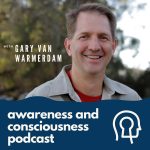
Self Judgment is the most common type of abuse. It’s self-abuse. No one is more critical of you than the voice in your head. If anyone else talked to you the way the Judge in your mind spoke to you, you would fight back or walk away from them. We can’t stop what other people think and say about us, but we can change what we think and say about our self. However, this is easier said than done.
I cover all this in detail in this episode on Self Judgment.
We can tell ourselves we won’t be so hard on our selves, but that rarely changes the dynamic. In actuality, that bit of advice is very often a condemnation of behavior we don’t like. When the self judgment in laced in the advice and good intention, it is like having poison in the medicine.
What does it take to stop being hard your self? In this audio, I break down the belief system behind self-judgment. You’ll be able to see why those negative thoughts keep coming back. In the Self Mastery program I provide a series of exercises that allow you to let go of self-judgment permanently. The first few exercises are free.

